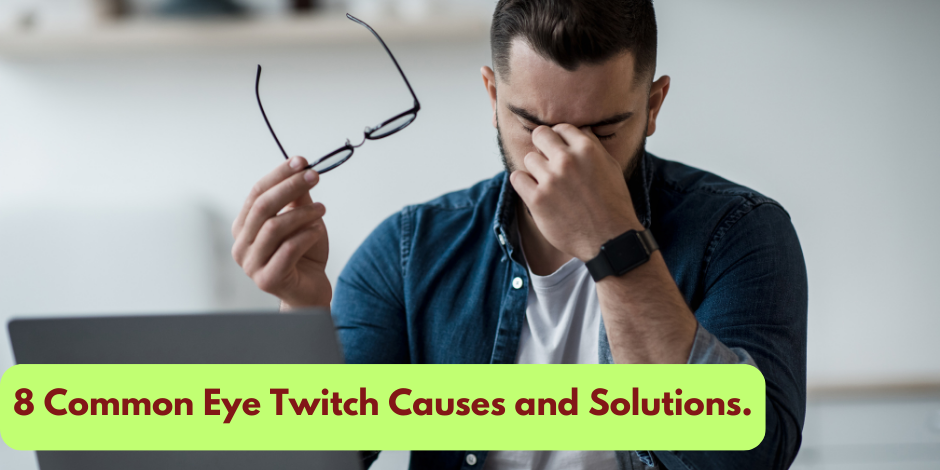Eye twitching, also known as myokymia, is a common and usually harmless condition where your eyelid, typically the lower one, naturally waves or contracts. While it can be annoying, it rarely indicates a serious problem. Here are eight common causes of eye twitches and their solutions:
1. Stress
Cause: Stress is one of the most common triggers of eye twitches. Your body responds to stress in various ways, and eye twitching can be one of them.
Solution: To reduce stress, try relaxation techniques such as deep breathing exercises, meditation, yoga, or taking short breaks during your day.
2. Fatigue
Cause: Lack of sleep or being overly tired can cause your eyelid muscles to spasm.
Solution: Ensure you get enough rest. Aim for 7-8 hours of sleep per night to help your body recover and function properly.
3. Eye Strain
Cause: Spending long hours staring at screens (computers, smartphones, TVs) can strain your eyes and lead to twitching.
Solution: Follow the 20-20-20 rule: every 20 minutes, take a 20-second break and look at something 20 feet away to reduce eye strain.
4. Caffeine
Cause: Excessive consumption of caffeine from coffee, tea, soda, or energy drinks can trigger eye twitching.
Solution: Reduce your intake of caffeinated beverages. Switch to decaffeinated options or herbal teas.
5. Alcohol
Cause: Drinking alcohol can also cause your eyelid to twitch.
Solution: Limit your alcohol consumption. Opt for non-alcoholic drinks, especially if you notice a connection between drinking and eye twitches.
6. Dry Eyes
Cause: Dry eyes can result from various factors, including aging, contact lens use, medications, and environmental conditions.
Solution: Use lubricating eye drops to keep your eyes moist. If dryness persists, consult an eye specialist for further treatment.
7. Nutritional Imbalances
Cause: A deficiency in certain nutrients, particularly magnesium, can lead to muscle spasms, including eye twitches.
Solution: Ensure you have a balanced diet rich in essential vitamins and minerals. Foods high in magnesium include leafy greens, nuts, seeds, and whole grains.
8. Allergies
Cause: Allergies can cause your eyes to itch, leading to rubbing and twitching.
Solution: Manage your allergies with antihistamines or other allergy medications. Avoid allergens whenever possible and keep your environment clean.
When to See a Doctor
While most eye twitches are harmless and resolve on their own, you should see a doctor if:
- The twitching persists for more than a few weeks.
- The twitching causes your eye to completely close.
- You experience twitching in other parts of your face.
- You have redness, swelling, or discharge from your eye.
- You notice drooping of your eyelid.
For expert eye care, consider visiting Iris Eye Care, the best Eye Clinic in Moshi. Dr. Vasundhara Kulkarni and her experienced team can help diagnose and treat any persistent eye issues you might have.
Eye twitching can be annoying, but understanding its causes and solutions can help you manage and prevent it. Remember to take care of your overall health and consult a specialist if the twitching persists.







